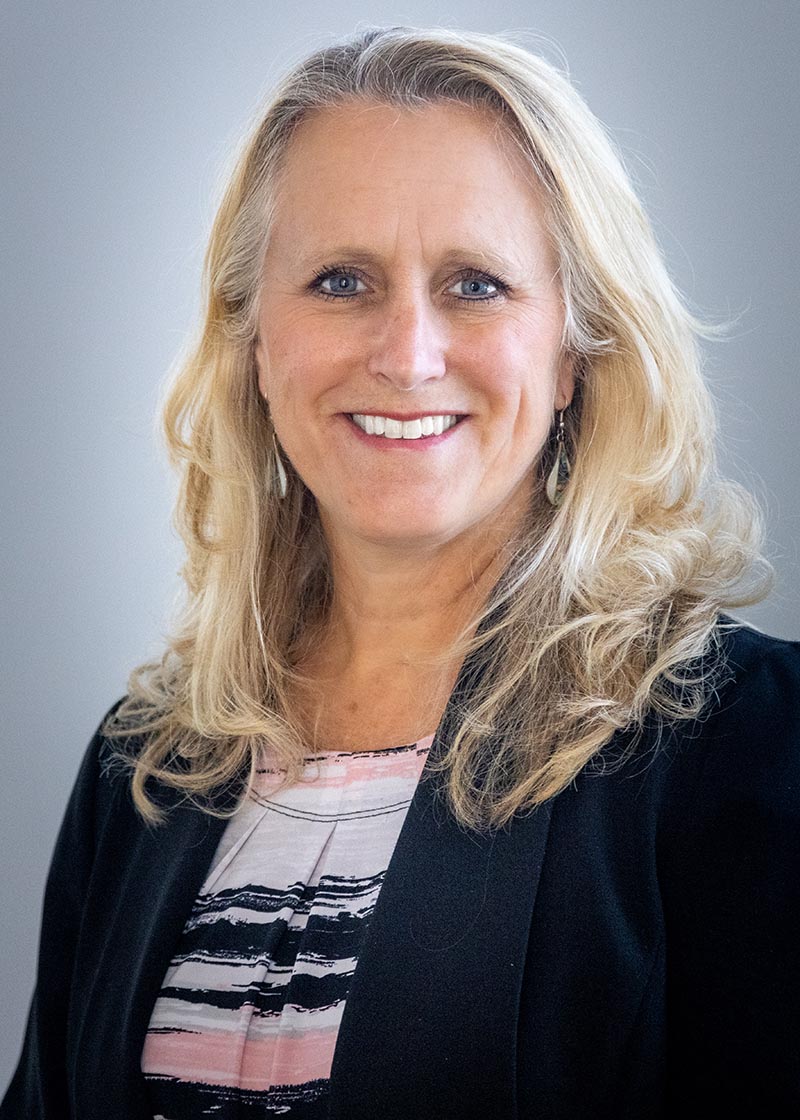Anyone embarking on a career in health care knows they must pass a lot of math and science courses. While that foundational knowledge is important, so is knowledge of culture, critical thinking, and communication. Establishing that balance before a career in health care is the mission of a unique program by The University of New Mexico Health Sciences Rio Rancho campus.
The Pre-Health Scholars Certificate (PHSC), established two years ago, combines science, technology, engineering and math (STEM) fields with humanities and cultural experiences. Applications for the next cohort are open now.

“By making better human beings, we make better health professionals, and what I mean by better human beings is they are more culturally humble, more culturally aware, more self-aware, better listeners, better communicators, better at connecting and building empathy.”
Laura Burton, PhD, designed the PHSC and is the associate director of UNM Health Sciences Rio Rancho Campus. She helps lead the program, which consists of five courses- three in the fall and two in the spring. Each course is three credit hours, and PHSC was approved by the UNM Board of Regents as a 400 and 500-level program. That means it is for advanced undergraduate students or any college graduates.
“I have at least six alumni who are in the process of applying to medical school, one who is planning to go to physician assistant school, and one student who is currently doing research at the National Institutes of Health (NIH) and the Drug Enforcement Administration (DEA) in Washington, D.C.,” Burton said. “I have one student who already has been accepted into medical school after trying more than once to get in before taking the PHSC program.”
That student is Lorenzo Silva, who said he applied to medical school twice and was unsuccessful. He decided his next application would be to the first PHSC cohort in the spring of 2022. He began the program the following summer and graduated in May 2023.
“I saw this program as an opportunity to strengthen my resume and learn skills that would hopefully prepare me for a career in health care,” Silva said.
This month Silva is starting classes in the UNM School of Medicine. He said the PHSC program made all the difference and has helped shape his focus in health care.
“The PHSC program has equipped me with communication skills and critical thinking needed for a career in medicine,” he said. “It has also made me more sensitive to the human elements of medicine and how one's culture, socioeconomic status, and other personal factors influence their wellness. As I enter my first year of medical school, I hope to one day use these skills to advocate for New Mexico's communities and tailor my care to meet the individual needs of my patients.”
Silva said the most important thing he has learned from this program is the value of reflection.
“Just like the patients we serve, each of us has a unique story,” he said. “We come from different backgrounds, cultures, and lived experiences. These experiences make us who we are and can also make us better health providers, if we reflect and learn from them.”
Sahar Alahyari Beig joined the second PHSC cohort more than a decade after graduating college. “I found this program and immediately knew it would grant me the opportunity to learn about New Mexico’s communities, cultures, and health needs,” she said. “Spoiler alert: it gave me even more than that.”
Beig just completed the program this year and is now applying for medical school. Her advice to future program participants is to “be prepared to experience a whole new way of learning and know that (your teachers and PHSC alumni) are here for you.”
Applications are open now, until Aug. 1, 2024. You can read more about the available courses and eligibility requirements below.
Pre-Health Scholars Certificate Courses
- Meanings and Culture in Health and Illness – This course is designed to help students understand and explore the complexities of meanings, cultures and social factors and how they interplay with the conceptualization, experiences and treatment of health and illness.
- Integrating Psychology and Medicine – In addition to exploring how behavioral health impacts medical conditions and outcomes, this course, taught by a clinical psychologist, also addresses a common struggle – having difficult and emotional conversations with patients. Burton said she heard from the programs that this struggle was common with students and new professionals.
- Critical Thinking, Learning and Problem Solving for Health Professionals – A deficit in critical thinking and problem solving was commonly identified by the health programs as a weakness in candidates and students, Burton said. This course will help define critical thinking, how to use it and how to apply it to problem solving. In addition, understanding how graduate learning is different from undergraduate learning will help students develop more effective learning strategies.
- Communication in Action for Health Professions – This course will develop students’ verbal and written communication skills, with a focus on narrative medicine, engaged listening and mindfulness in communication, as well as writing and interviewing skills. Students will develop a more complex conceptualization of communication, especially within the health care context.
- Pre-Health Observational Learning – In this course, students will do professional shadowing and community engagement. Students will be connected with a health care professional for guided shadowing. For community engagement, students will go on field trips into rural and tribal communities, which will largely be in Sandoval County. On the field trips, they will gather with community members to hear about their health care experiences and learn about the assets and challenges of the communities. Guest speakers will provide meaningful learning of health disparities, social determinants of health and cultural differences.
The program is eligible for financial aid and prerequisites include two semesters of general chemistry, two semesters of biology, two semesters of English, Intro to Psychology (PSY1110), Intro to Statistics (Math1350) or Psych2150. Exceptions can be made by petition to the director for special approval. In addition, students must have a junior standing (60 credit hours) and a cumulative GPA of 3.0 or higher.
To apply for the program, visit hsc.unm.edu/prehealth. For more information or if students have any questions, contact HSCPreHealth@salud.unm.edu or 505-994-5000.
